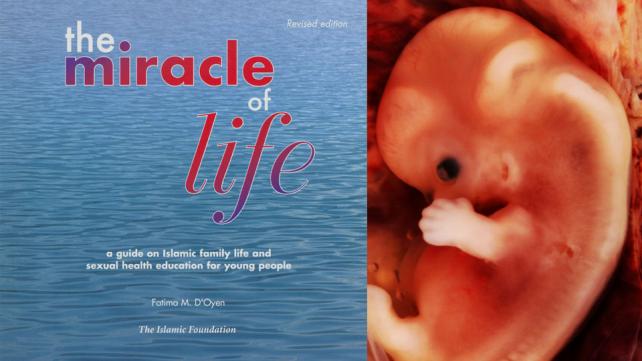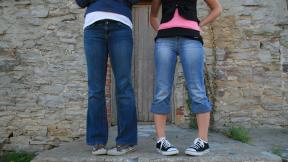
Discussing sex is rarely ever easy, whether you're the one asking or answering. The situation is often even more tense when it involves Muslim parents discussing the issue from an Islamic perspective with their children.
This is why Fatima M. D'Oyen's book The Miracle of Life: a guide on Islamic family life and sex education for young people (The Islamic Foundation, 1996) is a necessary tool for Muslims both young and old, especially those growing up in North America and Europe.
The 94-page publication presents a straightforward discussion about sex and family life from an Islamic perspective. Although it does not include details about every aspect of the topic, it is still a good introduction for young and old Muslims alike.
While D'Oyen, an American Muslimah who converted to Islam 20 years ago, has worked in obstetrics and newborn intensive care nursing, her discussion on topics like menstruation, adolescent biological changes and sexually transmitted diseases, for instance, smack of no complex medical jargon. The entire book is written in a clear, concise style, that is easy to understand.
Other issues discussed include discrimination against baby girls in some families, homosexuality, personal hygiene and teenage peer pressure and friendships.
One topic I was pleasantly surprised to find was the issue of sexual abuse. D'Oyen candidly talks about incest, rape and sexual harassment, and clearly criticizes practices even in Muslim countries which can lead to such practices (i.e. family members sleeping together in the same bed after the age of 10).
The book is aimed at Muslims growing up in the West and their parents, and takes into account this cultural factor.This is why it talks about the theory of evolution (passed off as fact in virtually all public schools in North America) and in contrast presents the Islamic view of the beginning of human life, for example. Another instance is D'Oyen's promotion of a gradual approach to wearing Hijab for Muslim women, as opposed to harsh condemnation of those who don't wear it.
However, one weakness I found in The Miracle of Life is its lack of cited references. While this may have been done to simplify the presentation of the book, I felt ill at ease at times reading something cited from Hadith, for instance, not knowing where exactly it was coming from.
There are also inaccuracies here and there (like when she says women can wear “light facial make up”..”as long as it does not attract too much attention”-page 51).
As pointed out in its preface, the book is not to be used as the only tool to answer questions like “where do babies come from?” Rather it is meant to spur and direct discussion about sex between parents and kids.
I would also recommend it to new Muslims and non-Muslims, who can gain an understanding of issues like Islamic customs about marriage and the birth of a baby by reading the book.
The Miracle of Life should be included on the bookshelves of every home, mosque, library, public school and Muslim school. While its approach may be simple, it provides a good general overview of sex and family issues from an Islamic perspective as well as an incentive to seek more knowledge about the topic.








Comments
In our socity no body will accept to this book axcept modren people.bucause in our culture is not premitted to any one to read like this type of books. this is upto you what was your aim before read this book.
Location
Add new comment